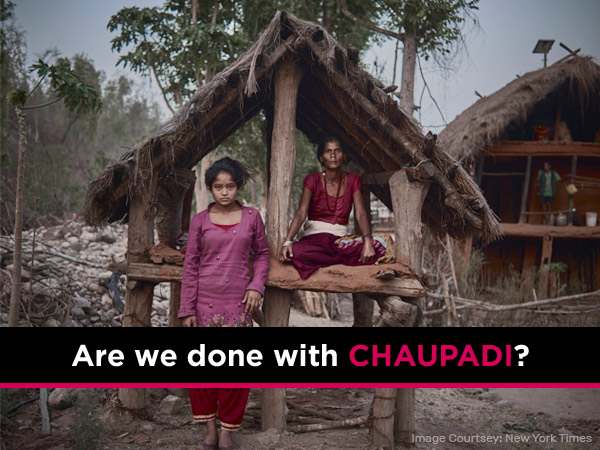
There are some areas where the archaic and misogynistic practice called Chaupadi is still relevant which identifies women as impure during their periods.
What is Chaupadi?
‘Chaupadi pratha’ is a traditional practice which originated from Nepal, where menstruating women are isolated from their families and houses and are made to live in cattle sheds and small secluded huts as they are considered impure and untouchable during their periods. Menstruating women are thought to offend the Hindu gods and bring down a curse on their households if they remain indoors with the family, hence the monthly tradition of banishment promoting further subservience of women and controlling them.
While banished the women face, and frequently die from, brutally hot temperatures, asphyxiation from fires lit to keep warm during winter, diseases cropping out of intimate hygiene issues, the danger of getting bitten from venomous cobra snakes, and rape.
In Nepal, Chaupadi practice had been finally criminalized in August 2017 but there are still certain regions of Kullu district where locals are practicing Chaupadi.
According to a district administration survey, in 91 of the 204 panchayats, menstruating women are still forced to live in cattle sheds.
The Menstruation Awareness campaign is named Naari Samman (Pride of a Woman). The campaign has planned to recruit anganvadi and health workers, women’s groups, temple committees, religious organizations, local theatre artistes and folk groups to destigmatize periods and raise awareness among locals and begins from Naujana Village of Kullu district.
A helpline has also been set up to provide free counseling and health services (doctors, psychiatrists) to women where they can receive guidance.






,